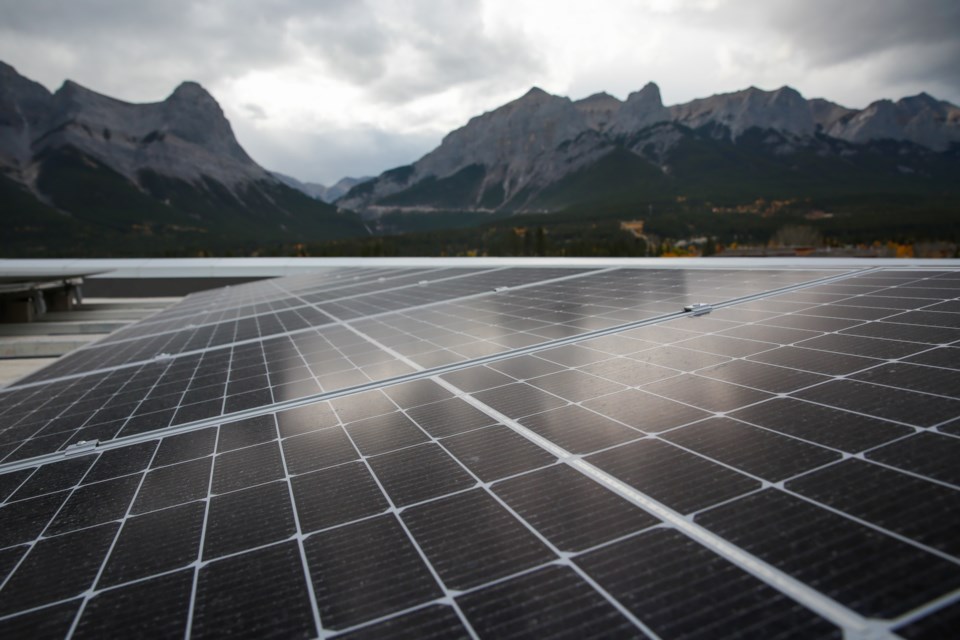CANMORE – Canmore's elected officials are considering creating a new tax bylaw that would provide financing to undertake renewable energy upgrades on residential and commercial properties.
The Clean Energy Improvement Tax bylaw was before council on Nov. 3 for first reading and a public hearing was set for next Tuesday (Dec. 1).
The municipality's sustainability coordinator Lori Rissling-Wynn said council previously voted to support the Clean Energy Improvement Program (CEIP) in 2018, when it was known as the Property Assessed Clean Energy Program.
"[It] allows owners access to flexible long-term financing through their municipality," Rissling-Wynn said. "That repayment is facilitated through an added charge to the participant's property tax bill."
She said the program functions similar to a local-improvement levy, which a municipality can use to cover the cost of certain types of improvements in a neighbourhood.
The municipality pays for the up-front cost of the clean energy installation project. That is repaid over a 25 year term through an additional assessment on the property owner's municipal property tax bill.
Property owners can receive up to 100 per cent of the project costs up front. Rissling-Wynn said clean energy improvements include energy conservation retrofits, or the installation of onsite renewable energy.
The Municipal Climate Change Action Centre (MCCAC) is the program administrator for Alberta municipalities. Rissling-Wynn said Canmore worked with the centre to design the program for this community.
"The program administrator, MCCAC, will maintain a list of eligible projects on their website and these can be bundled," she said.
Other municipalities like Devon and Rocky Mountain House have already established bylaws to create the program, while Edmonton is in the detailed design phase for its program. If the bylaw for Canmore is approved, the program is expected to launch in late 2021.
Rissling-Wynn said one-third Canmore's greenhouse gas emissions come from existing buildings and this program would reduce those with energy efficient improvements and by scaling up renewable energy in the community.
"Alberta is one of the only provinces in the country that actually has enabling legislation to allow these programs to move forward," she added. "Our primary goal of implementing CEIP is to help reduce the community's greenhouse gas emissions related to the energy consumption of our building stock and move us towards achieving our greenhouse gas reduction targets."
Energy savings and achieving sustainability goals, while also supporting local jobs and economic development, are some of the benefits to the community, Rissling-Wynn said.
A market study completed by MCCAC forecast that the program would see an uptake of 62 projects in the first four years and that it would increase over time.
The municipality expects to launch the residential program first, followed by a commercial program in subsequent years. The public hearing is set for Tuesday at 9 a.m.




